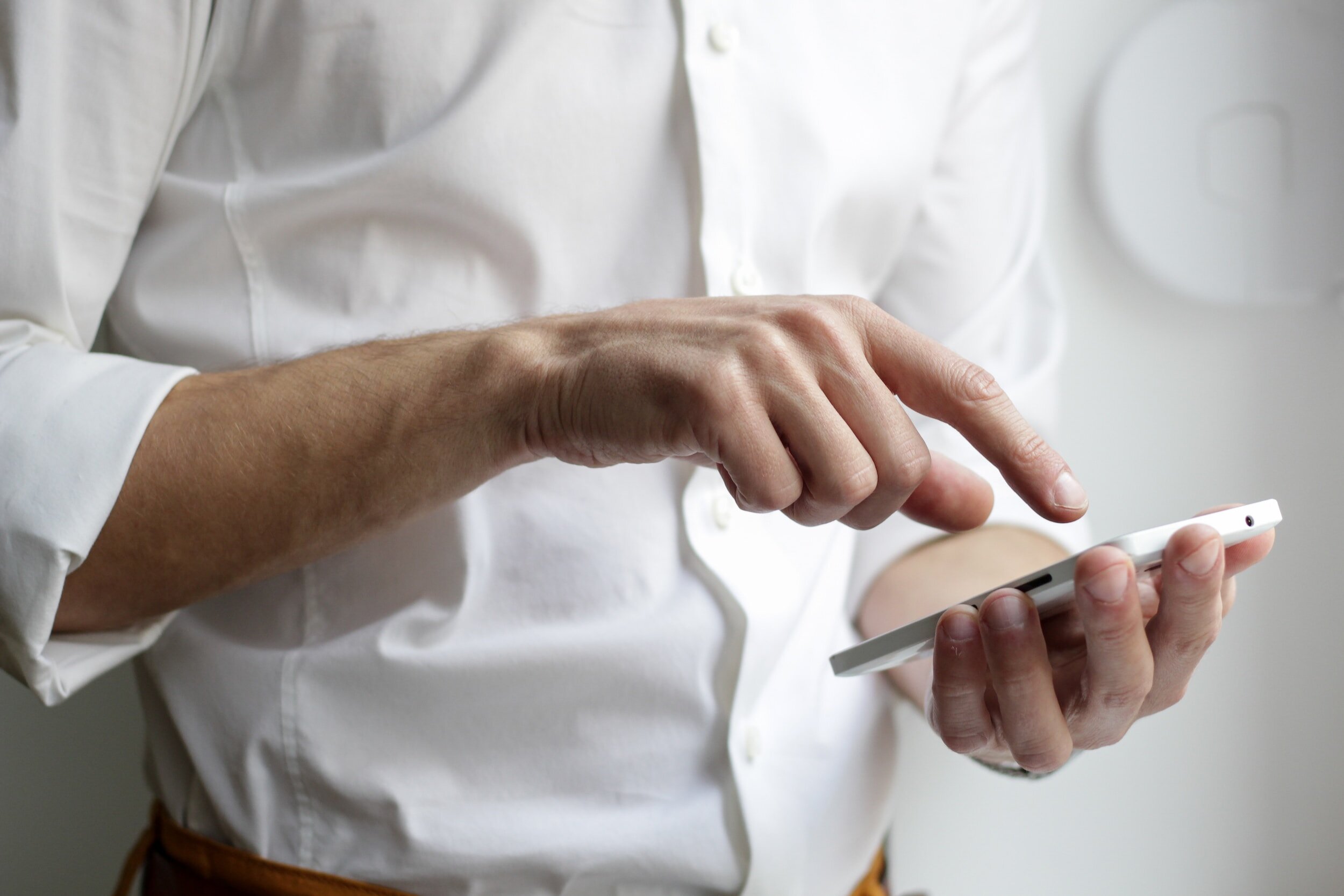There’s an App for That!: Guide to mental health apps
Leeann Martinez, LMSW is a therapist passionate about making mental health services fun and accessible to people of all ages. Learn more about technology-based resources to support your mental health and wellness.
In this day and age, most people have a smartphone, so why not use it as a mental health resource? Mental health applications can assist in tracking moods, thoughts, behaviors, and urges. (1) Below are some of the most popular mental health applications, with users that are seeing results. Of course, it is not recommended to replace therapeutic treatment with these applications, but these applications can be a great supplement to therapy. Has there been a time you sat down for a session and suddenly realized you weren’t sure what to talk about? These applications can assist you in tracking your day-to-day, making it easier for you and your therapist to track your daily data and identify what is working and what may need to shift. These applications are a convenient way for you to take additional initiative in your treatment goals.
The one to help you ACE self-care!
Finch: Self-Care Pet allows you to befriend a bird as your new self-care buddy. As you complete the mindful exercises, you are taking care of your self-care pet. The application initiates a daily check-in and ends the day with gratitude. The mindful exercises you can choose from goal tracking, bullet journaling, breathing, quizzes, mood tracker, quotes, sleep-focused activities, and insights.
The one to help you work towards sobriety!
I Am Sober can be utilized for any pattern of behavior you are trying to break. With this application, you are able to track your sober days. Each day, you make a pledge with this application to your commitment of being sober, and at the end of the day, you are able to reflect on how you managed throughout the time. I Am Sober keeps data on your triggers, helping you to see what works and what doesn’t. You manage a sobriety calendar, to see how much money you save breaking that habit. You have the ability to notice the timeline of your withdrawal symptoms, as it is common that there be a timeline. (2) You are able to upload reasons and photos to help you to remember the reason why you are working so hard.
The one to build your relationship with your emotions!
This aesthetically pleasing application is just that. If you are a creative and looking to keep track of your daily emotions and moods but find it difficult to get out the pen and paper, How We Feel makes mood tracking feel inspiring. The intention of this application is to gain more understanding of your emotions. How We Feel was created with the research of Yale University’s Center for Emotional Intelligence and the work of Dr. Marc Brackett. This application has intriguing categories of “Change Your Thinking”, “Move Your Body”, “Be Mindful”, and “Reach Out”.
The one to help you with self-harm urges and triggers!
Calm Harm is based on Dialectical Behavior Therapy (DBT therapy) treatment and encourages the skilled use of emotion regulation, mindfulness, distress tolerance, and interpersonal effectiveness to manage self-harm urges. This application helps with skills to use in the moment of an urge, how to manage current triggers, encourages your use of your support system, and allows for self-reflection.
While an app should not be seen as a replacement for more traditional mental health therapy services, it can be a tool to support mental health skill building and symptom management. And if you are interested in learning more about therapy services our team would love to connect with you. Whether you are interested in online therapy services on want more traditional therapy support in the context of our Arlington, TX-based therapy group, we are here to help.



